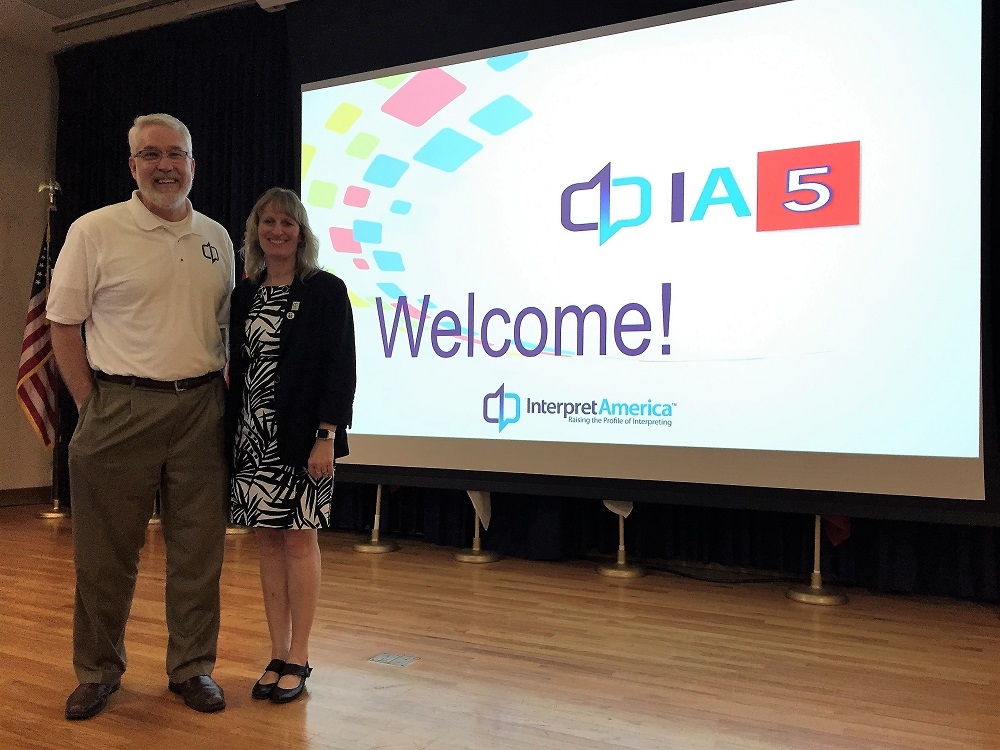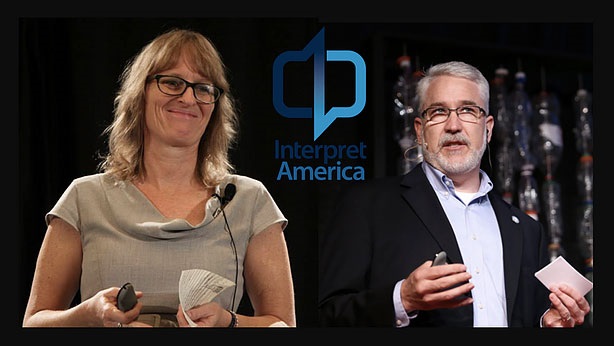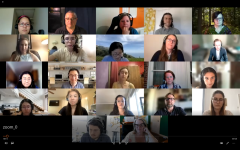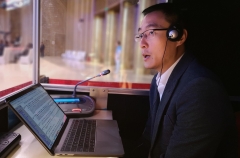Students and Recent Alumni Practice Their Skills in the First Olympics Junior Interpreter Program
| by Jessie Raymond
Maureen Sweeney MPA ’94, deputy chief of the interpreting staff for the 2020 Tokyo Olympics, developed a remote interpreting program to expand language services at the Games while giving MIIS students and recent graduates a chance to test their skills in a high-profile, real-world setting.




